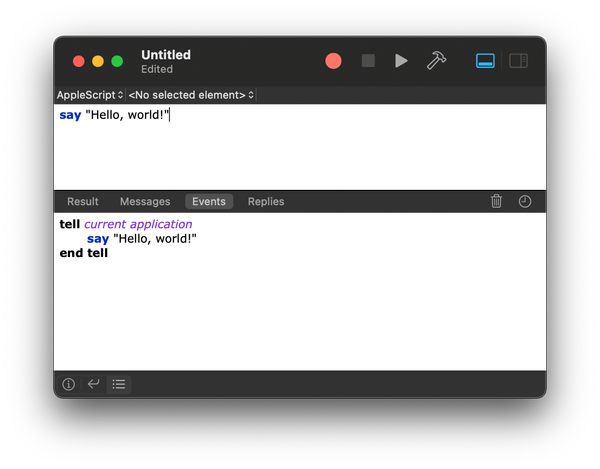Introduction to Filecoin
Filecoin is a decentralised storage network that enables users to store, retrieve and transfer data in a secure and efficient manner. It is built on blockchain technology and uses a unique incentive mechanism to encourage participants to provide storage space and bandwidth to the network.

What is Filecoin?
Filecoin is a decentralised storage network that enables users to store, retrieve and transfer data in a secure and efficient manner. It is built on blockchain technology and uses a unique incentive mechanism to encourage participants to provide storage space and bandwidth to the network.
How does Filecoin work?
Filecoin operates on a peer-to-peer network, where users can store their data in a distributed manner. When a user wants to store a file on Filecoin, it is split into smaller pieces and encrypted. These pieces, known as "filecoin proofs," are then distributed across multiple storage providers, known as "miners," who store the data on their machines.
To ensure the integrity and availability of the stored data, Filecoin implements a proof-of-replication mechanism. This mechanism verifies that the stored data is actually replicated across multiple miners, making it highly resistant to data loss or tampering.
Filecoin also implements a proof-of-spacetime mechanism to prevent malicious behavior. This mechanism ensures that miners are actually storing the data they claim to store and not just pretending to have the data to earn rewards. Miners are required to constantly prove that they are storing the data by providing cryptographic proofs.
Incentives for storage providers
Filecoin introduces a unique economic model to incentivise storage providers. Miners are rewarded with Filecoin tokens for storing and providing access to data. The amount of reward is determined by factors such as the amount of storage space provided and the duration for which the data is stored.
The Filecoin network uses a blockchain-based cryptocurrency called FIL to facilitate these incentives. Storage providers can earn FIL tokens by participating in the network and offering their storage space. These tokens can then be exchanged for other cryptocurrencies or used to pay for storage services within the Filecoin ecosystem.
To further incentivise storage providers, Filecoin implements a reputation system. Miners with a good reputation, based on their past performance and reliability, are more likely to receive storage requests from users. This ensures that high-quality storage providers are rewarded and that the network remains reliable and efficient.
Retrieving data from Filecoin
When a user wants to retrieve their data from Filecoin, they submit a retrieval request to the network. Miners who have the requested data can respond to the request and provide the data to the user. The retrieval process is designed to be fast and efficient, ensuring that users can access their data in a timely manner.
Filecoin employs a market-based approach to data retrieval. Users can specify their desired retrieval time and price and miners can choose to fulfill the request based on these parameters. This allows for flexibility and efficiency in data retrieval, as users can prioritise speed or cost based on their needs.
Benefits of Filecoin
Filecoin offers several benefits over traditional centralised storage solutions:
Decentralisation: Filecoin is built on a decentralised network, which means that there is no single point of failure. This makes it highly resilient to attacks and ensures that data is always available. The distributed nature of the network also provides increased data redundancy and durability.
Security: Filecoin uses encryption and distributed storage to ensure the security and privacy of user data. Each file is encrypted and split into smaller pieces, which are then distributed across multiple miners. This makes it extremely difficult for unauthorised parties to access or tamper with the data.
Efficiency: Filecoin leverages the unused storage capacity of miners, making it a cost-effective solution for storing large amounts of data. By incentivising storage providers, Filecoin ensures that there is always sufficient storage capacity available on the network. Additionally, the market-based retrieval system allows users to optimise their data retrieval experience based on their specific needs.
Incentives: The incentive mechanism of Filecoin encourages storage providers to participate in the network and offer their storage space. By rewarding miners with Filecoin tokens, the network creates a vibrant ecosystem of storage providers. This ensures the availability and reliability of the network, as miners are motivated to continuously provide storage and maintain the network's integrity.
Interoperability: Filecoin is designed to be compatible with existing storage systems and protocols. This means that users can seamlessly integrate Filecoin into their existing storage infrastructure without significant modifications. This interoperability allows for easy adoption and integration of Filecoin in various industries and applications.
Conclusion
Filecoin is a groundbreaking decentralised storage network that offers secure, efficient and cost-effective storage solutions. By leveraging blockchain technology, Filecoin provides a robust and reliable platform for storing and accessing data. With its decentralised nature, strong security measures, efficient retrieval system and incentivised storage providers, Filecoin is poised to revolutionise the storage industry. Whether it's for personal data storage, enterprise-level requirements, or archival purposes, Filecoin provides a decentralised and reliable solution for all data storage needs.
Note: This article is for informational purposes only and should not be considered as financial advice. Always do your own research and consult with a qualified financial advisor before making any investment decisions.



